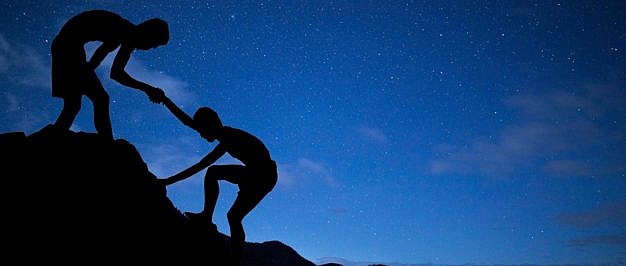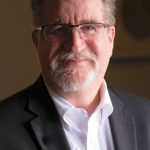Tomorrow I leave to give a weeklong retreat to retired Marianist brothers and priests in a care facility in Dayton, Ohio, my first retreat since the pandemic began. This community of men, who will be joined at the retreat by some younger Marianists who live in the area, have been hit hard in the past 18 months, losing more than 20 members due to COVID-19 and other health issues. I have a deep feeling that I will learn more from …
Category: Vocation & Call
We seek God in quiet. We are nourished and calmed by that presence. But we also must be prepared to wade into the depths and find a hand waiting for us. …
Over the past few weeks, I have taken part in more than a few online, faith-based presentations and dialogues focused on issues surrounding racial injustice in America. But even as we gather to help find our places and voices in the ongoing conversations, protests and proposed solutions to racial injustice and violence, we find ourselves in the liminal and paradoxical space that exists between hopelessness and hope. …
If we’re going to claim a place on God’s vine, we have the duty to bear fruit that will draw others to God. We have an obligation to be the kind of fruit that brings broad smiles to others (even behind their masks) and makes them wonder what kind of master farmer produces such goodness. …
For, as the wise monk [Thomas Merton] taught us, the real journey is what happens inside of us. More important than our accomplishments, careers and titles, is the way we have grown inside ourselves during the time we have been given. More important is our growing awareness, acknowledgement and, ultimately, surrender and response to the “creative action of love and grace in our hearts,” which is about as good a definition of God as you can find anywhere. …
This is why Jesus washed the feet of his disciples. This is why he taught that our neighbor is anyone in need. It’s why he told us to love the least of our brothers and sisters. Because that’s where he is and where we will most readily find him. Serving others is more than charity, more than good works, more than a quick foot washing. It’s a chance to meet Jesus face to face. …
I am very close to beginning a new walk, as retirement from my position at the university looms large (target date: June 14). The question I hear most frequently, you might imagine, is “what are you going to do?” It will likely come as no surprise to those who know me if I say, “I have a plan.” …
I recently came across this line of poetry from the Chilean poet Pablo Neruda: “Everything is ceremony in the wild garden of childhood.” And, of course, that’s right. Take, for example, the pick-up games of some variation of baseball (fuzz ball, Indian ball, Wiffle® ball, cork ball, kickball, step ball) of my childhood in North St. Louis in the early ‘70s. …
Like many, I was impatient and restless as a young person. My favorite prayer was something along the lines of, “That was fun. What’s next?” What I learned as I grew older was the importance of savoring the gift of the present and the little. …
As the Catholic Church faces its future and works to rebuild the faith and trust of its faithful, we all need to ask ourselves a question: Are we standing in the right place? …

